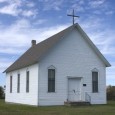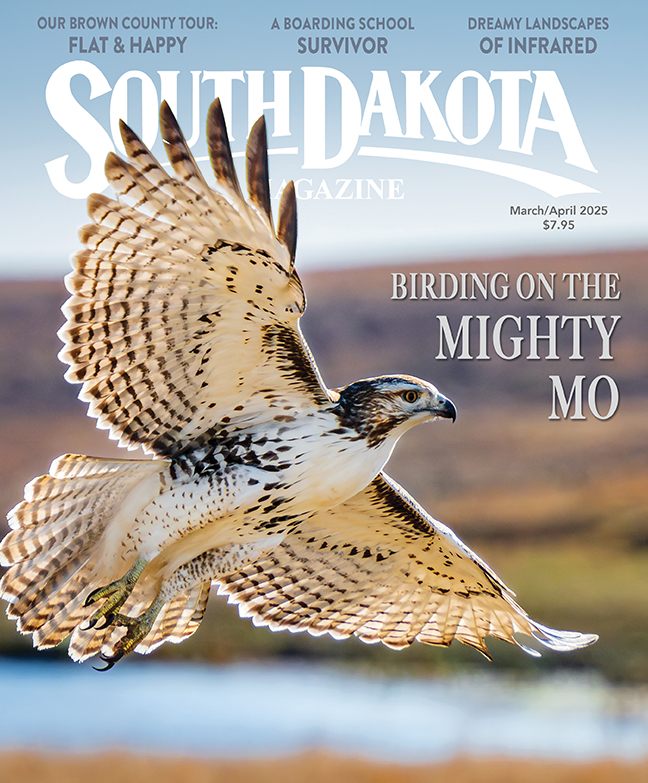The Gift of South Dakota
Subscriptions to South Dakota Magazine make great gifts!
Subscribe today — 1 year (6 issues) is just $29!
Freedom of Religion and Hosanna-Tabor Church
Jan 17, 2012
By Ken Blanchard
Hosanna-Tabor Evangelical Lutheran Church and School v. EEOC is probably the High Court’s most important ruling on Free Exercise of Religion since Employment Division v. Smith (1990). Unlike Smith, however, Hosanna-Tabor seems not to be attracting much criticism.
Cheryl Perich was employed as a “called” teacher by Hosanna-Tabor Lutheran School. Called teachers are recognized as “ministers of religion” and can teach religious classes. Ms. Perich took disability leave due to an illness (narcolepsy). When she notified the school that she would soon be able to resume her duties, she was informed that she had been replaced and was offered a settlement in return for resigning from her post. She refused. When she was told that she would likely be fired, she responded that she had contacted an attorney and intended to assert her legal rights. She was fired.
Perich then filed a charge with the Equal Employment Opportunity Commission, on the grounds that her termination violated the Americans with Disabilities Act. A District Court found in favor of Hosanna-Tabor School, citing a “ministerial exception” to employment discrimination laws. That means, basically, that Churches are exempt from such laws when it comes to hiring and firing persons with religious duties. A Court of Appeals reversed and from there it went to the Supreme Court.
Here is the Supreme Court’s unanimous decision, from the SCOTUS blog.
The Establishment and Free Exercise Clauses of the First Amendment bar suits brought on behalf of ministers against their churches, claiming termination in violation of employment discrimination laws. Moreover, because the respondent in this case was a minister within the meaning of the ministerial exception, the First Amendment requires dismissal of her employment discrimination suit against her religious employer.
This is a fine example of two forms of liberty in collision: freedom from discrimination in employment and free exercise of religion. The Court was certainly right to uphold the latter over the former in this case.
One of the fundamental aspects of religious liberty is the liberty to form a church and to organize it according to shared principles of faith without interference from the state. If the state could say who a church can or must ordain or who a church can or must defrock, that liberty would be destroyed. For that reason, the Court recognized a “ministerial exception” to employment discrimination laws.
Suppose, for example, a group of Native Americans organize a church (I use the term in the widest possible sense) around traditional native religious beliefs. Suppose that among those beliefs is that only members of a recognized tribe can belong to the church or serve it in any capacity including all paid positions. I hold that they would be well within their rights to do so. If I were able to sue their church on the grounds that they are discriminating against me by refusing to consider me for employment precisely because I am not a tribal member, that would be destructive of their rights under the Free Exercise Clause.
On Slate’s Political Gabfest, Emily Bazelon wondered whether the ruling in Hosanna-Tabor comes in conflict with the ruling in Smith. In the latter case, the court held that a law restricting a religious practice could survive free exercise scrutiny so long as it had a valid secular purpose and was generally applicable to persons regardless of religious identity.
Though interesting, the question is not difficult. The decision in Hosanna-Tabor is narrowly targeted to employment discrimination laws. The Free Exercise Clause does not give persons a general immunity to the laws. It certainly does not allow a church to do whatever it wants to do to its members or clergy. Human sacrifice is still illegal as is female circumcision. Churches cannot arbitrarily seize the property of their members or imprison them, etc.
The free exercise of religion is among the most fundamental liberties protected by the Constitution. The Court was right to protect it in this case.
Dr. Ken Blanchard is a professor of Political Science at Northern State University and writes for the Aberdeen American News and the blog South Dakota Politics.








Comments